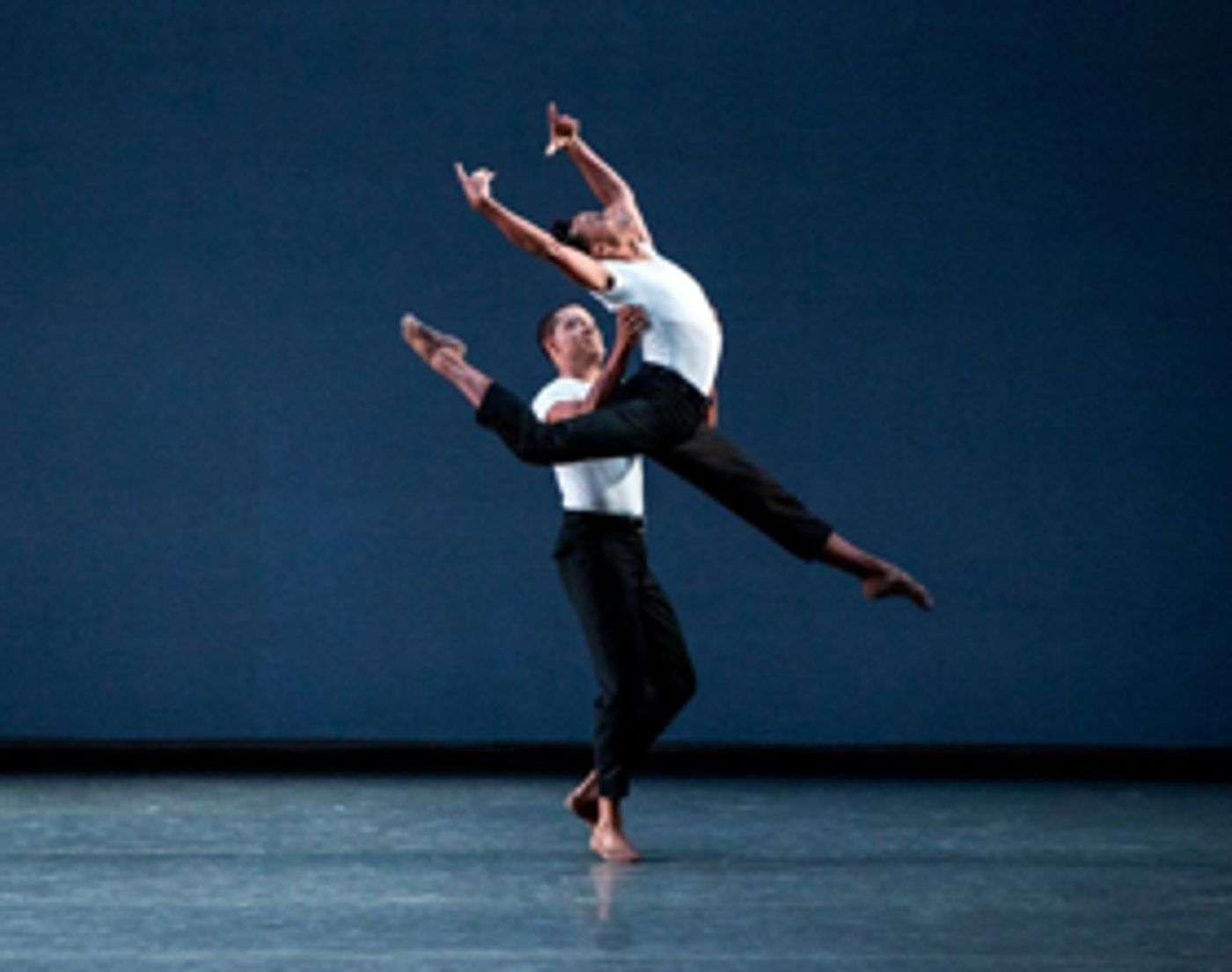BWW Dance Review: New York City Ballet Presents Mozartiana, Not Our Fate, Tschaikovsky Pas de Deux and Glass Pieces, May 24, 2018.

The curtain rises to a murmur of music. A ballerina dressed in black and white is standing with her hands outstretched looking down. She is surrounded by four little girls. She looks up and slowly takes notice of her surroundings. She is quiet, reflective; at times her hands are raised in prayer. She is never ostentatious; she dances with a pristine beauty that reflects the gentle music.
Maria Kowroski is the ballerina, in a role originated by iconic Suzanne Farrell, choreographed on her by Balanchine. The stakes are always high since many in the audience have seen Farrell dance this role. Others have taken it on, of course, but when you mention Mozartiana, who comes immediately to mind?Mozartiana is not by Mozart, but by Tschaikovsky, who took some Mozart piano pieces, orchestrated them, and produced his Suite No. 4. Nothing wrong with that. Let's forget the dancing just for a second. Have you listened to Mozartiana by itself? It's nice, has a floating, lilting quality. If you didn't know that it was adapted from Mozart, would you even think it Mozartean? Probably not. How about Serenadish?which derives from Stravinsky or the touch of sweet yearning which certain Tchaikovsky scores have been known to lend. If these variations are measured in these fractions of millimeters which chiefly delight the esthete, they are nevertheless present, valid and sensitive beyond peradventure. There are authority, superb technical competence, imagination, and musicianship always to be found in Mr. Balanchine's work; it is only range and, above all matter that they lack."
It sounds like giving on one hand and just as quickly taking it back. But those charges have been leveled at Balanchine for many years. Now that he's accepted we wouldn't ever have a critic react like John Martin.
The heart of the ballet is the pas de deux and solos by the two leads. There are many moods now, quickly following one another. If we follow the music closely these variations change rapidly from the sensitive to the speedy, to the highly engrossing and to the introspective. Balanchine follows the music seemingly note by note. Studying the score makes you think that perhaps every note is not worthy of a dance contribution, but that is exactly what Balanchine has done. Kowroski is not the only star on stage. There is Tyler Angle, her expert partner, a true cavalier who knows how to present a prima ballerina but does not shirk the limelight himself. Daniel Ulbricht brings his delightful smile and his ballon to a role in which he revels every second. Sometimes it can seem like he's a show-off. But his vivacity and charm are always so winning.Lauren Lovette's Not Our Fate, which was well received at its premiered in 2017, again proved to be as startling and innovative as when I first saw it.
Inspired by a poem by Mary Elizabeth Sell, a NYCB corps member, the ballet is like a launching pad for many groundbreaking ideas that have been percolating recently in American society, not to mention the dance world, particularly diversity and gender fluidity. Many have recently begun to address this in their works, notably NYCB's Justin Peck, but Ms. Lovette, as a choreographer who also happens to be female, brings her own background and perceptions to her choreography.
We are introduced to a black, gay male couple, Preston Chamblee and Taylor Stanley; and one Caucasian straight couple, Meaghan Dutton-O'Hara and Ask la Cour. They dance to the loud and thumping music of Michael Nyman, a suite from his Prospero's Books, which could be monotonous after a short time. Luckily, Lovette has created bold and imaginative images onstage so that we can forget the loud notes emanating from the orchestra pit.
The two couples are highly attractive, yet it is the male couple that asks us to take notice. Same sex pas de deux have become somewhat commonplace now. The problem is we see two men dancing and think that we've seen it before. But here the men are doing more than dancing--- they are living to the fullest. Their attraction is almost startilng in the way they look and touch. Their arousal is palpable throughout their bodies. And that overwhelming feeling of total surrender to another is marked by tender hands and supple backs.
Both Preston Chamblee and Taylor Stanley were outstanding. Their ability to convey such passion and love in a ballet was overwhelming. I have admired Mr. Stanley before, and he has always been a silky, elegant dancer, but not a person on fire. As the saying goes, he was smoking.
Meaghan Dutton-O'Hara and Ask la Cour were terrific as the straight, Caucasian couple, but this ballet belongs to the men-and the choreographer. I wonder what they'll think of the ballet in 50 years. A representation of the times?
The evening concluded with Jerome Robbins' Glass Pieces, well danced by Teresa Reichlen and Ask la Cour, and Balanchine's Tschaikovsky Pas de Deux, danced by the incredibly speedy dynamo Ashley Bouder, and by Zachary Catazaro, who needs more coaching, as he was no match for his ebullient partner.
A wonderful evening,
Preston Chamblee and Taylor Stanley in "Not Our Fate." Photo © Paul Kolnik.
Reader Reviews
Videos

